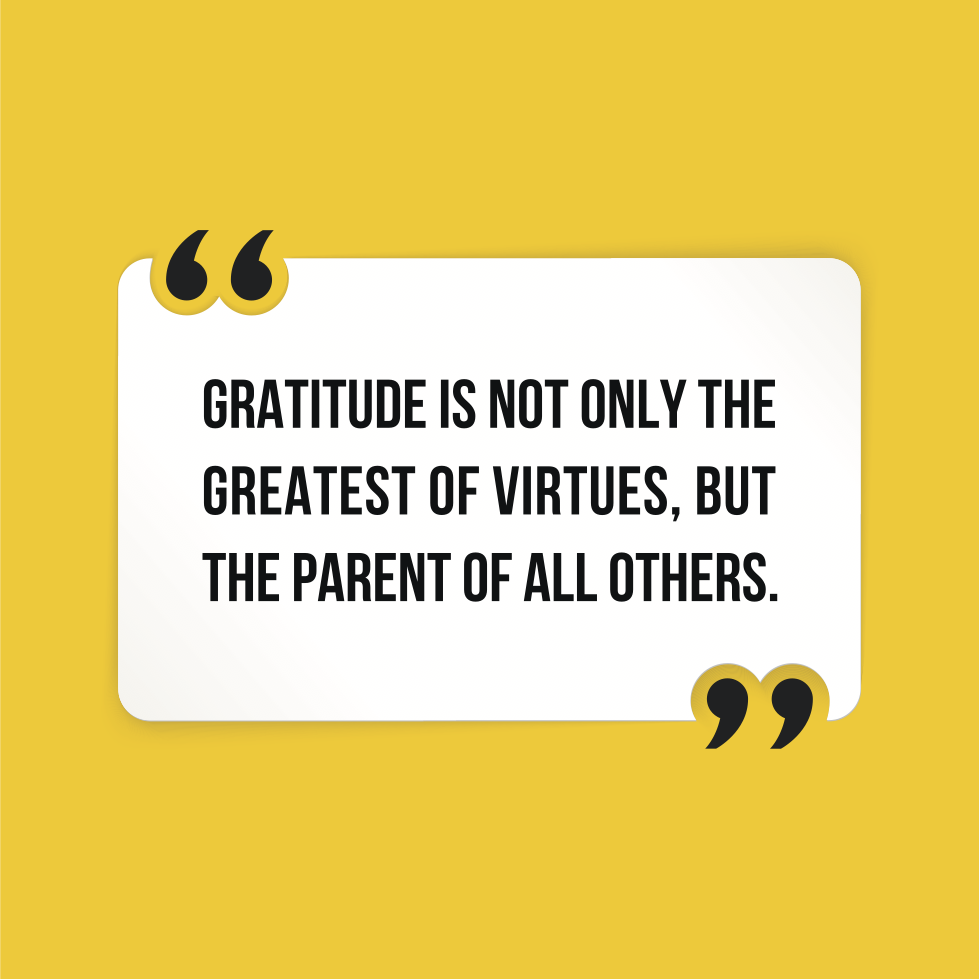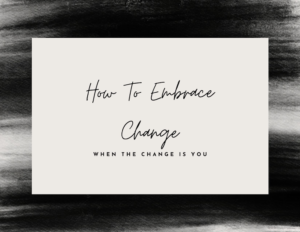
The single most important tool you have for manifesting the life you want is gratitude. It’s a very simple concept and tool that is accessible to all of us. It requires a small amount of effort to activate, and is infinitely powerful. Isn’t it encouraging and empowering to know that the critical tools you need to be successful in life already reside within you?
To be candid, I have a natural disposition to optimism and focusing on the positive. However, I am human and can easily succumb to negative thinking under the right circumstances. So, practicing gratitude is essential to keeping my mind right. By the same token, when practicing gratitude in an intentional and meaningful way, I am able to channel my thinking into an optimal flow. That flow propels my progress towards my ambitions. These ambitions include personal and professional goals.
In other words, where you focus your energy is what you inevitably welcome into your life. I admit, gratitude is just one piece of the puzzle. That is to say, you will need to call on various tools throughout your day and life in order to live a happier more fulfilled life and to make your dreams come true. However, gratitude is the most important tool—serving as an anchor—that you can use to accelerate your progress from wishful thinking to wishful doing.
If you want to get started and reap the rewards of gratitude now, I recently posted this article on how to change your life—it includes a holistic exercise that routinely incorporates a daily practice of gratitude. Nevertheless, you might need some convincing about the benefits of practicing gratitude first. If so, keep reading. I’ll explain what gratitude is, help you nail down what to be grateful for, review the benefits of practicing gratitude, and share some strategies to consistently incorporate this practice into your life.
Defining Gratitude
So, what exactly is gratitude? You can find lots of definitions, but I define gratitude as the emotion of thankfulness and appreciation for what is valuable or meaningful to oneself, whether tangible or intangible. I love the broadness of this definition because it allows you to identify what is valuable or meaningful to you. Thus, you can express thanks for whatever you want. It can be a big thing or a small thing—even something totally innocuous. Ultimately, the key is identifying something that brings you peace or joy or whatever it is that you need in that moment.
What Should You Be Grateful For?
With such a broad definition, you can be grateful for something big, like being the unexpected beneficiary of a kind act, or something as simple as your decongestant kicking in. It’s funny how you don’t appreciate being able to breathe through your two nostrils until you’ve had a stuffy nose for what feels like an eternity—even if it’s only been a few hours! Amiright? [On a serious note: This example assumes you have a nose—which you might not. It’s a reminder that just having a nose in and of itself is a blessing. My father falls into the category of having a nose ravaged by cancer. So, I share this example in all earnestness. It really does give a whole new perspective for being grateful for “stopping and smelling the roses.”].
My point is this. The definition I provided offers the most flexibility for you to decide what you choose to be grateful for in your life. It can be anything. You get to decide what is meaningful to you in any given moment.
To be clear, there will be phenomenal days where planned or unplanned acts of kindness, activities, or events, will rise to the top of your gratitude list. I’m talking the types of things that make you feel special, loved, and on top of the world. On the contrary, you might have to sit and reflect on your source of gratitude a little longer during challenging times. And, let’s be real. Life and moods can pull the switcheroo on us rather quickly. Fortunately, both scenarios offer us an amazing opportunity to experience tremendous peace, satisfaction, and joy through life’s ups and downs.
As you’re reading this now, what is something that you are grateful for today? It could even be finding this article or blog. Whether something immediately popped into your head, or whether it took you some time, the point is that it’s the little things that count. Every day on this planet is a gift and we should cherish the time we have before it runs out. As they say, life is short. Nobody knows that better than someone who is firmly planted in middle age or beyond.
Tip
If you’re having a hard time identifying a source of gratitude, let me put it to you like this. No matter how ordinary or bad your day was, it can always be worse. I use this trick all the time when I catch myself frustrated, angry or sad. As an example, I literally begin thinking of all the myriad things that could go wrong. Moreover, I think of the things that would land my day in the Guinness Book of World Records for the worst day ever recorded.
Oh, and I’m not afraid to get creative and outlandish with it either. I’m talking every “life is stranger than fiction” thing that could ever go wrong. After I list about two, three or 10 things [depending on how bad my day truly was or how bad my life feels in that instant], I snap out of my “woe is me” moment. Actually, I find myself grateful for even the tiniest, seemingly insignificant thing. Gratitude has the power to keep us grounded and so much more.
Ready for the Science? Here’s Why You Should Practice Gratitude
There is ample research on the scientific benefits of practicing gratitude. If gratitude is a new concept for you or you want to indulge your inner skeptic or simply learn more about gratitude, this piece by Amit at Happier Human is a great place to begin. Through his article, you can explore the benefits of gratitude more deeply. You can also dig into this article by Positive Psychology. Both resources provide much more detail and numerous citations and references. However, if you’re like me and want the abbreviated no nonsense version, here’s what you need to know in a nutshell:
The benefits of gratitude are split into five categories (Ackerman, 2021).
- Emotional benefits
- Social benefits
- Personality benefits
- Career benefits
- Health benefits
Essentially, you can positively impact every aspect of your life when you practice gratitude. In fact, the more frequent and consistent your practice, the better results you’ll experience. Gratitude is the bridge that connects what you have now with what you desire in the future. I can attest to experiencing these benefits firsthand in every aspect of my life.
Gratitude and Emotional Benefits (Ackerman, 2021)
Evidence from several studies have shown that practicing gratitude can…
- Make you happier
- Increase psychological well-being
- Enhance your positive emotions
- Increase your self-esteem
- Keep suicidal thoughts and attempts at bay
Gratitude and Social Benefits (Ackerman, 2021)
When it comes to social benefits, it makes sense that if you are a happier and more positive individual that other people will enjoy being around and spending time with you. Insofar as social benefits, gratitude can…
- Make people like you
- Improve your romantic relationships
- Improve your friendships
- Increase social support
- Strengthen relationships in times of stress
This means that you can build a stronger relationship with your significant other. In addition, you can expand your personal and professional network. By having the right support in place when you need it, your network can come through for you in difficult, stressful and challenging times.
Gratitude and Personality Benefits (Ackerman, 2021)
When you practice gratitude on a consistent basis, you can even affect your personality to…
- Make you more optimistic
- Increase your spiritualism
- Make you more giving
- Indicate reduced materialism
- Enhance optimism
Gratitude and Career Benefits (Ackerman, 2021)
It should come as no surprise that emotional, social, and personality benefits carry over into your professional life and career. However, evidence also demonstrates that practicing gratitude offers additional unique benefits to the workplace, and can…
- Make you a more effective manager
- Reduce impatience and improve decision-making
- Help you find meaning in your work
- Contribute to reduced turnover
- Improve work-related mental health and reduce stress
The benefits to your career can lead you to promotions, new and exciting opportunities, and provide long-term stability. Personally, I find that I am a more empathetic and patient leader. In addition, I am better able to identify and harness the strengths of my team members.
Gratitude and Physical Health (Ackerman, 2021)
As if the benefits to your emotional well-being, relationships and career weren’t sufficient, there is also evidence that your physical health improves when you practice gratitude. The daily practice of gratitude can…
- Reduce depressive symptoms
- Reduce your blood pressure
- Improve your sleep quality
- Increase your frequency of exercise
- Improve your overall physical health
Have you been wondering how to finally make your exercise routine or new diet stick? Want to boost your mood and live a less stressful and healthier lifestyle? Gratitude might be the missing ingredient. I find that gratitude allows me to enjoy carving out time to honor my physical body. More importantly, engaging in restorative practices improves my overall wellbeing. I feel like I can take on anything.
Added Bonus: The Role of Gratitude in Recovery (Ackerman, 2021)
Beyond physical health benefits, there have been several recent developments that point to gratitude aiding in the recovery of several illnesses and diagnoses. As a result, gratitude may be able to…
- Help people recover from substance misuse
- Enhance recovery from coronary health events
- Facilitate the recovery of people with depression
Addictive and self-destructive practices can be incredibly difficult habits to break. In the era of COVID, feelings of isolation can further exacerbate negative emotions, substance abuse, and more. If you’re navigating behaviors that are stealing joy from you and your relationships, here are some additional resources you might find helpful from the Substance Abuse and Mental Health Services Administration (SAMHSA). Practicing gratitude is one small step you can take today to engage your recovery and a happier, healthier lifestyle.
How to Practice Gratitude and Reap the Rewards
So now that you know all of the benefits of practicing gratitude, are you ready to reap the rewards? Here is the number one practice that I have found amplifies the power of gratitude and can accelerate your transformation from wishful thinking to wishful doing. What all three practices have in common is writing down what you are grateful for and taking time to revisit what you have expressed gratitude for.
Gratitude Journal
I love a good journal! This is my personal favorite and it is the most powerful gratitude practice bar none. It’s simple to do, takes little time, and is the most streamlined activity that allows you to keep and review all of your gratitude items in a single location. Did I mention that it travels easy? Taking your gratitude show with you on the road is a win-win, if I say so myself!
Step 1: Find a journal that suits your fancy online or at your local arts and crafts store or big box retailer. You might find that you prefer a lined or dotted grid journal. Step 2: Find a journal style that inspires you. It can be minimalist, artsy, or have a cover that speaks to your inner spunk. Step 3: The only other tool you need is a pen or a pencil. Step 4: Every day, write the date in a format that works for you and aim to write down three things you’re grateful for.
If you want my two cents [And I assume you do if you’re reading this.], I recommend you incorporate this activity into your wind down activity of the day. I prefer to write in my gratitude journal in the evening. I find that closer to bedtime I can take stock of my day better. As a result, I can document gratitude to my heart’s content. While I encourage you to aim for documenting three grateful moments, you can write as many as you like. At minimum, always write down at least one thing.
Throughout this process, you might discover that the act alone of just documenting your gratitude is enough to lead a happier more fulfilling life. However, it can be incredibly more meaningful and powerful to review your grateful moments periodically. You can spark joy anytime you want by randomly selecting a page in your gratitude journal to read. Or, you can make a routine of revisiting your gratitude at the end of every month or another set time.
Want to explore additional ways to practice gratitude or get the family involved?
Here is a great resource from Positive Psychology with popular gratitude exercises and activities for every age. And, don’t forget my previous article on how to change your life. Gratitude is even more powerful when coupled with daily affirmations.
Check-In
- How many days this week did you practice gratitude?
- Have you accepted the daily expression of gratitude as a permanent practice?
- How was the experience for you?
Let me know in the comments!

























